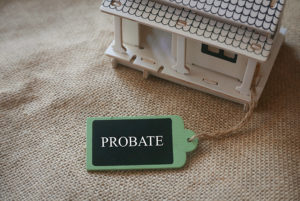What are the misconducts of an executor in the UK?

What if the person appointed to uphold the wishes of the deceased fails in their duty instead of protecting them? In the UK, many beneficiaries face the misconduct of an executor, turning an already painful succession into a real ordeal. Delays, lack of communication, mismanagement, or even fraud;these issues are real and frequent. In such cases, the support of a specialist solicitor is often essential to unblock the situation and defend your interests.

Key Takeaway: What can you do when an executor fails to fulfil their duties?
Request clarification by contacting the executor for a detailed report on the administration of the estate.
- Send a formal notice by recorded -delivery to assert your rights and demand action.
- Apply to the court to initiate legal proceedings, including the removal of the executor if necessary.
- Request the appointment of a replacement executor by the court if the current management is inadequate or negligent.
This article explainshow to respond effectively to the misconduct of an executor and outlines the legal steps you can take as a beneficiary.
What is an executor and what are their responsibilities?
An executor is a key figure in the administration of a deceased person’s estate. They are appointed by the deceased to ensure their wishes are respected and their assets are properly handled and distributed.
Their duties include:
- Collecting and safeguarding the estate’s assets;
- Settling any outstanding debts, bills, and taxes;
- Distributing the remaining estate to the beneficiaries in accordance with the will.
They must also maintain transparency throughout the process, keeping the beneficiaries informed of the progress of the estate administration. Their role involves a high duty of care, requiring honesty, diligence and integrity.
What constitutes executor misconduct in the UK?
Executor misconduct in the UK can take several forms, all of which may harm the beneficiaries or undermine the proper administration of the estate:
Lack of financial transparency
The executor is legally obliged to provide a clear and transparent account of the estate’s finances. Failing to provide detailed financial reports to beneficiaries regarding assets, debts, or expenses can create mistrust and lead to disputes regarding the use of the deceased’s funds.
Unjustified delays
If the executor fails to complete tasks within a reasonable timeframe, it may cause inconvenience to the beneficiaries. For instance, delaying the sale of a property despite the beneficiaries’ consent, or indefinitely postponing the distribution of the estate without valid reason, may prevent the beneficiaries from receiving their share and cause financial hardships.
Misappropriation of funds or fraud
In serious cases, the executor may use the deceased’s assets for personal gain. Examples includeselling property below market value and keeping the difference, or using estate funds for personal expenses like holidays or luxury purchases.
Negligent asset management
Poor management can have serious consequences. This includes failing to maintain estate property, allowing valuable assets to deterioate, or failing to secure items such as shares,jewellery, or important documents.
Exclusion of certain beneficiaries
Whether intentionally or accidentally, the executor might omit distributing assets to certain beneficiaries named in the will. For example, failing to notify an heir living abroad or deliberately excluding a beneficiary without lawful cause can lead to legal challenges and emotional distress.
How to respond to executor misconduct in the UK?
If you are facing poor or negligent estate administration by the executor, there are several ways to resolve the issue:
Start with an amicable approach
Beginby formally writing to the executor,requesting an explanation of the estate management. In your letter, assert your rights as a beneficiary and ask for supporting documentsrelated to assets, debts, and expenses. Respectful communication can often resolve misunderstandings or administrative oversights without the need for legal action.
Send a formal notice
If the issue remains unresolved, the next step is to send a formal notice. This type of written warning can prompt the executor to take action. Engaginga solicitor to draft and send the notice may strengthen your case and signal your willingness to take legal action if needed.
Pursue legal action
If no amicable solution is found, you may need to go to court as a last resort. You can apply to the High Court, which has the power to:
- Remove the executor if their behaviour is deemed inappropriate or malicious;
- Order the immediate distribution of assets if unreasonable delays are identified;
- Require a formal account of the estate’s administration to ensure financial transparency.
Appoint a replacement executor
If the original executor is found to be unfit or acting in bad faith, the court can appoint a replacement. This is typically a neutral professional, such as a solicitor or public trustee, who will manage the estate in the best interests of all beneficiaries.
What if the executor fails to distribute the estate after probate?
Probate is the legal process that officially validates the will, giving the executor the authority to manage the estate. When an executor fails to distribute the estate after probate, it can lead to significant legal consequences.
Once this authority is granted, the executor must act within a reasonable time,typically around six months. Exceeding this timeframe without valid reason constitutes misconduct. Beneficiaries may then:
- Request a detailed account: Ask the executor to provide a full breakdown of the estate’s administration, including an inventory of assets, payment of debts, and any distributions made.
- Seek removal of the executor: If the executor is found guilty of ongoing negligence or mismanagement of the estate, beneficiaries may ask the court to remove and replace them.
- Initiate legal proceedings: If the executor still refuses to distribute the assets, legal action can be taken to compel them to fulfil theirduties.
What if a beneficiary harasses the executor in the UK?
Sometimes the conflict doesn’t stem from the executor, but from a beneficiary whose actions disrupt the administration process. Several options are available to protect the executor and ensure the estate is managed efficiently and lawfully:
- Seek court protection: The executor can request an order from the court to limit the disruptive influence of the beneficiary and allow the estate to be administered without interference.
- Hire a solicitor: A solicitor can help structure communication, reduce tensions, and ensure the executor’s rights are clearly understood and upheld.
- Obtain a court order: The judge can issue a specific order to restrict abusive behaviour from the beneficiary , protect the executor, and prevent further interference in the estate’s administration.
Do I need a solicitor when facing misconduct from an executor?
In complex or high-value estate administration cases, legal support from a solicitor is essential. Here’s how they can help:
- Case assessment: The solicitor analyses the situation and identifies any misconduct by the executor.
- Building a strong case: They assist in gathering documents to support your position and prepare for legal action.
- Negotiation and legal action: The solicitor drafts formal correspondence, negotiates with parties, and if necessary, initiates court proceedings on your behalf.
- Advice on costs and timelines: They advise on financial implications, realistic timeframes for action, and the likelihood of success based on your situation.
Working with a solicitor can significantly increase your chances of achieving a fair and timely resolution, while helping you navigate the emotional and legal complexity of estate disputes with confidence.
FAQs
Can an executor also be a beneficiary? Yes, it’s common for executors to also be beneficiaries, as long as they act impartially and fulfil their legal duties.
How long does an executor have to distribute an estate in the UK? There is no strict deadline, but distribution is generally expected within 6–12 months after probate is granted.
What happens if multiple executors disagree? If joint executors cannot cooperate, one or more can apply to the court to resolve the dispute or seek removal.
Examples of executor misconduct in the UK are not uncommon. From prolonged silence and financial mismanagement to outright fraud or serious disputes with beneficiaries, such behaviour can significantly delay the administration of an estate and cause unnecessary stress for those involved.
Get the support you deserve!
If you’re facing misconduct, confusion, or conflict during estate administration, Qredible’s trusted network of solicitors is here to help.
KEY TAKEAWAYS
- The executor must respect the wishes of the deceased and manage the estate transparently.
- Delays, fraud, or negligence may create conflicts with the beneficiaries.
- Beneficiaries can demand an account, seek executor removal, or take the matter to court
Articles Sources
- gov.uk - https://www.gov.uk/hmrc-internal-manuals/trusts-settlements-and-estates-manual/tsem6054
- gov.uk - https://www.gov.uk/probate-estate/managing-and-selling-assets
- gov.uk - https://www.gov.uk/hmrc-internal-manuals/trusts-settlements-and-estates-manual/tsem6079
- legislation.gov.uk - https://www.legislation.gov.uk/ukpga/Geo5/15-16/23/part/II
Do you need a solicitor?
Find a solicitor on Qredible in just a few easy steps













